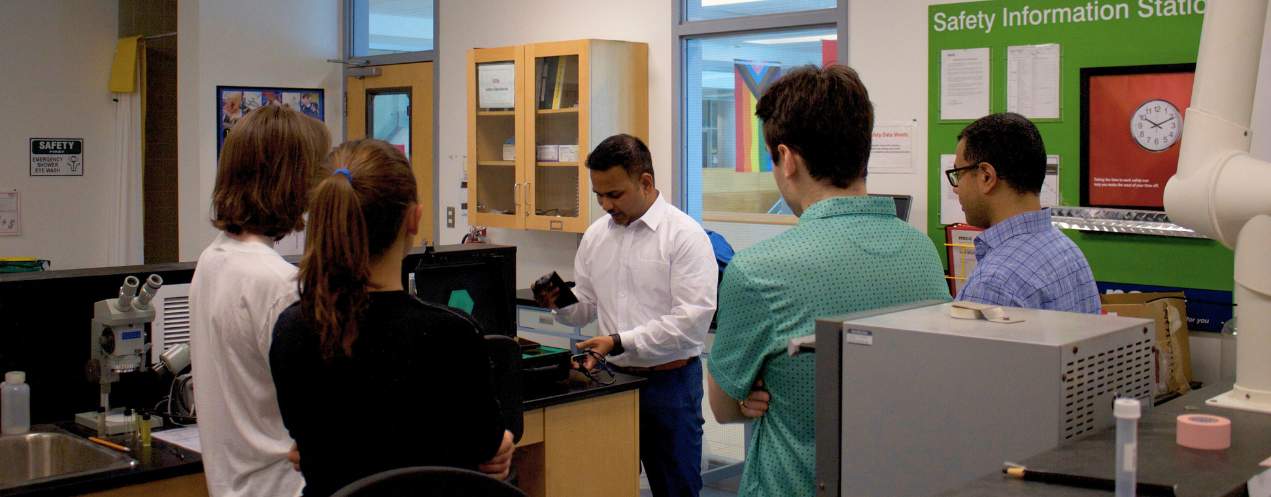Addressing blue-green algae in freshwater ecosystems

Summary
Blue-green algae (cyanobacteria) is becoming an increasing issue in freshwater ecosystems across Nova Scotia. This ongoing project, which began in 2023, focuses on testing water samples from lakes in Shubenacadie for cyanobacteria and conducting stream restoration efforts. Hexsor Scientific Canada donated one of their "sensors in a suitcase" units to enable on-site testing for cyanobacteria toxins, with data transmitted remotely. NSCC engineered technologist researchers have been calibrating the unit and comparing its results with those from a third-party certified laboratory to ensure accuracy.
Challenge
This project addresses the growing threat of blue-green algae in freshwater ecosystems, a problem made worse by climate change. Cyanobacteria blooms can produce harmful toxins, which pose risks to both humans and animals, often leading to public advisories. The challenge lies in conducting real-time water sampling and analysis across multiple lakes to detect blue-green algae, eliminating the need for traditional lab-based testing and enabling more immediate responses.
Outcome
The unit provided by Hexsor Scientific Canada has proven effective in detecting cyanobacteria toxins. Students are currently trained on using the equipment for ongoing research. We are also working on integrating a sonde provided by Hexsor onto a USV system for deployment in lakes, enabling real-time monitoring of cyanobacteria toxins, particularly during the summer months.
Partners
- Hexsor Scientific Canada

- Shubenacadie Watershed Environmental Protection Society

